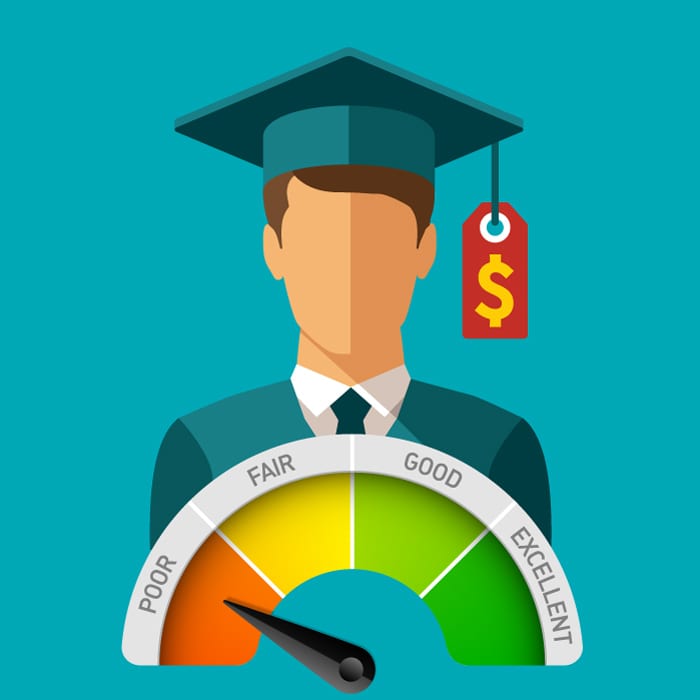Discover trusted Installment Loans that fit your income range
A Comprehensive Overview to Home Loans: Provider and Options Explained
Charting the globe of home mortgage can be intricate. Different options exist, each with one-of-a-kind features and effects for potential house owners. Recognizing the distinctions in between government-backed and conventional financings is important. Furthermore, the application procedure involves meticulous documents and pre-approval actions that numerous overlook. As customers begin on their home-buying journey, recognizing how to take care of these duties effectively might imply the difference between financial security and hardship. What methods can encourage them on this course?
Understanding Home Loans: Types and Terminology
Understanding the numerous kinds of home loans and their connected terms is vital for potential house owners, as it equips them with the knowledge needed to make enlightened economic choices. Home financings can be generally classified right into adjustable-rate and fixed-rate home mortgages. Fixed-rate home mortgages maintain a consistent rate of interest rate over the life of the finance, providing security in monthly payments. Cash Advance. Conversely, adjustable-rate mortgages include rate of interest prices that may change after a preliminary set period, potentially leading to lower preliminary repayments but enhanced future costs
Additional terms is important for clarity. Principal describes the loan amount borrowed, while rate of interest is the cost of borrowing that quantity. The regard to the car loan suggests its duration, typically ranging from 15 to 30 years. Recognizing these fundamental ideas allows prospective buyers to navigate the complex landscape of home financing, guaranteeing they pick the right loan alternative that straightens with their financial circumstance and long-term goals.
Standard Car Loans vs. Government-Backed Loans
A significant distinction in home funding exists in between conventional financings and government-backed fundings, each accommodating different customer demands and circumstances. Standard car loans are not insured or assured by the federal government and generally require greater credit rating and down repayments. They are frequently appealing to customers with secure financial backgrounds, as they may provide affordable rate of interest rates and terms.
In contrast, government-backed loans, such as FHA, VA, and USDA lendings, are designed to assist specific teams of consumers, consisting of new buyers and professionals. Fast Cash. These financings normally include lower deposit demands and more adaptable credit score criteria, making them easily accessible to a wider series of individuals
Inevitably, the option between government-backed and standard lendings depends upon the borrower's monetary circumstance, long-term objectives, and qualification, making it necessary to meticulously examine both choices prior to choosing.

The Function of Rate Of Interest Prices in Home Financing
Interest rates play a vital role in home funding, affecting customers' decisions in between variable and set rate financings. The selection in between these options can considerably affect monthly payments, affecting total price. Comprehending how rate of interest work is necessary for any individual steering via the home finance procedure.
Taken Care Of vs. Variable Prices
Property buyers face an important choice when selecting in between repaired and variable rates, as this selection considerably affects the cost of funding over time. Fixed-rate home loans supply stability, securing in a rates of interest for the life of the financing, which can be beneficial in a climbing rate of interest environment. This predictability permits house owners to budget extra successfully. Conversely, variable-rate mortgages, or variable-rate mortgages (ARMs), typically start with lower initial rates that can change based upon market problems. While this might result in lower preliminary payments, customers deal with the danger of increased prices in the future. Ultimately, the choice between variable and set rates depends upon private economic scenarios, threat resistance, and expectations pertaining to future interest price patterns.
Effect On Regular Monthly Repayments
When examining home financing alternatives, the impact of rates of interest on monthly payments is an essential factor to contemplate. Rate of interest directly influence the overall cost of loaning, influencing just how much a customer will pay every month. A reduced interest price outcomes in smaller monthly payments, making homeownership more budget-friendly. Alternatively, greater prices can considerably boost month-to-month commitments, potentially stressing a house owner's budget plan. Additionally, the financing term plays an important duty; longer terms might spread settlements out yet can lead to paying even more rate of interest in time. Comprehending exactly how rate of interest prices engage with finance amounts and terms is important for customers to make educated financial choices and pick a home mortgage that lines up with their long-term financial objectives.
Home Mortgage Brokers vs. Direct Lenders: Which Is Right for You?
When considering a home loan, potential consumers need to comprehend the distinctive functions and responsibilities of home loan brokers and straight lenders. Each choice presents its very own benefits and drawbacks, which can considerably influence the general cost of financing. An informed choice needs cautious evaluation of these elements to determine the most effective fit for private demands.
Roles and Responsibilities Defined
Navigating the intricacies of home financing requires a clear understanding of the roles and obligations of home mortgage brokers and direct loan providers. Mortgage brokers serve as middlemans, connecting borrowers with loan providers. They analyze a debtor's economic situation, curate financing options, and guide customers through the application process, commonly leveraging multiple loan provider relationships to secure beneficial terms. On the other hand, straight lenders, such as financial institutions and credit report unions, provide financings directly to debtors. They deal with the whole funding process, from application to funding, with a focus on their very own products. Each alternative offers unique opportunities for getting funding, making it necessary for consumers to review their preferences and needs when deciding between involving a home loan broker or working with a straight lending institution.
Benefits and drawbacks Comparison
Choosing in between a home mortgage broker and a direct loan provider can greatly influence the home financing experience, as each option offers special benefits and drawbacks. Home mortgage brokers function as middlemans, supplying access to multiple lenders and potentially far better prices, while streamlining the funding procedure. They may charge costs and count on payment structures that could affect their suggestions. On the other hand, straight lending institutions simplify the process by supplying internal fundings, which can lead to quicker approvals and less problems. Alternatively, they may have a minimal selection of items and much less flexibility regarding prices. Eventually, the choice rests on specific choices, economic circumstances, and the wanted level of support throughout the home mortgage journey.
Cost Ramifications Assessed
While evaluating the price implications of home loan brokers versus straight loan providers, potential house owners must think about various elements that can significantly influence their general expenditures. Home loan brokers typically charge fees for their services, which can vary significantly, influencing the general lending price. They frequently have accessibility to a wider array of lending products and competitive prices, possibly conserving borrowers money in the long run. On the other hand, direct lenders may use an extra uncomplicated procedure with perhaps reduced upfront costs, but their finance alternatives might be restricted. It is vital for house owners to compare rate of interest, costs, and terms from both lending institutions and brokers, ensuring they make an enlightened decision that aligns with their economic objectives and demands.
The Mortgage Application Refine: What to Anticipate

The home mortgage application procedure can usually feel daunting for several candidates. It normally starts with collecting needed paperwork, consisting of evidence of earnings, credit rating background, and individual recognition. Lenders use this information to evaluate the applicant's financial stability and determine funding qualification.
Next, candidates submit an official application, which might include filling up out on the internet forms or providing information in individual. During this phase, loan providers assess different aspects, such as debt-to-income ratio and credit scores score, to pick lending terms.
When pre-approved, the loan provider will conduct a comprehensive evaluation of the residential property to determine its value straightens with the funding amount. This stage might also consist of additional history checks.

After final approvals and conditions are satisfied, the financing is refined, bring about the closing stage. Understanding each step equips applicants, making the trip smoother and a lot more manageable as they relocate toward homeownership.
Tips for Managing Your Home Lending Properly
Effectively maneuvering the home loan application procedure is simply the start of an accountable financial trip. Managing a home finance calls for interest to a number of essential techniques. Customers must establish a clear spending plan that suits monthly mortgage settlements, residential property tax obligations, and insurance coverage. On a regular basis assessing this budget plan assists protect against overspending and assurances timely settlements.
In addition, making extra payments when feasible can significantly lower the car loan principal and total interest paid gradually. Customers should likewise maintain open lines of interaction with their lender, particularly in times of financial difficulty. This can cause potential solutions such as finance modifications or re-financing choices.
Finally, it is suggested to monitor credit rating frequently. A good credit score can offer opportunities for much better funding terms in the future. Cash Loans. By complying with these tips, property owners can navigate their car loan obligations successfully, ensuring lasting economic health and wellness and stability
Frequently Asked Inquiries
What Are Closing Costs and Exactly How Are They Calculated?
Closing prices encompass costs connected with finalizing a mortgage, consisting of evaluation, title insurance, and loan origination fees. These costs typically vary from 2% to 5% of the finance quantity, differing based on area and lending institution.
Can I Get a Home Lending With Bad Credit Score?
Yes, people with poor credit scores can qualify Cash Loans for a home mortgage, though choices may be limited. Lenders often need higher deposits or rate of interest, and exploring government-backed finances might improve possibilities of approval.
What Is Mortgage Insurance policy and When Is It Required?
When a debtor makes a down payment of much less than 20%, home loan insurance shields lenders against default and is commonly required. It ensures that lenders recuperate losses if the consumer stops working to pay back the funding.
Just How Does Refinancing Job and When Should I Consider It?
Refinancing entails replacing a present mortgage with a new one, commonly to protect a lower rates of interest or modification car loan terms. House owners need to take into consideration refinancing when rate of interest go down substantially or their economic situation improves.
What Happens if I Miss a Mortgage Payment?
If a mortgage settlement is missed out on, the loan provider typically examines late costs, reports the misbehavior to credit report bureaus, and may initiate foreclosure process if settlements continue to be ignored, ultimately threatening the home owner's building.
Fixed-rate mortgages preserve a constant passion price over the life of the finance, providing stability in regular monthly settlements. A considerable difference in home funding exists in between standard financings and government-backed finances, each catering to various customer needs and circumstances. In comparison, government-backed finances, such as FHA, VA, and USDA fundings, are designed to assist particular groups of consumers, including new property buyers and professionals. Interest prices play an important duty in home financing, influencing debtors' decisions between variable and fixed rate lendings. Fixed-rate home mortgages offer security, securing in a rate of interest rate for the life of the loan, which can be helpful in a rising passion rate atmosphere.